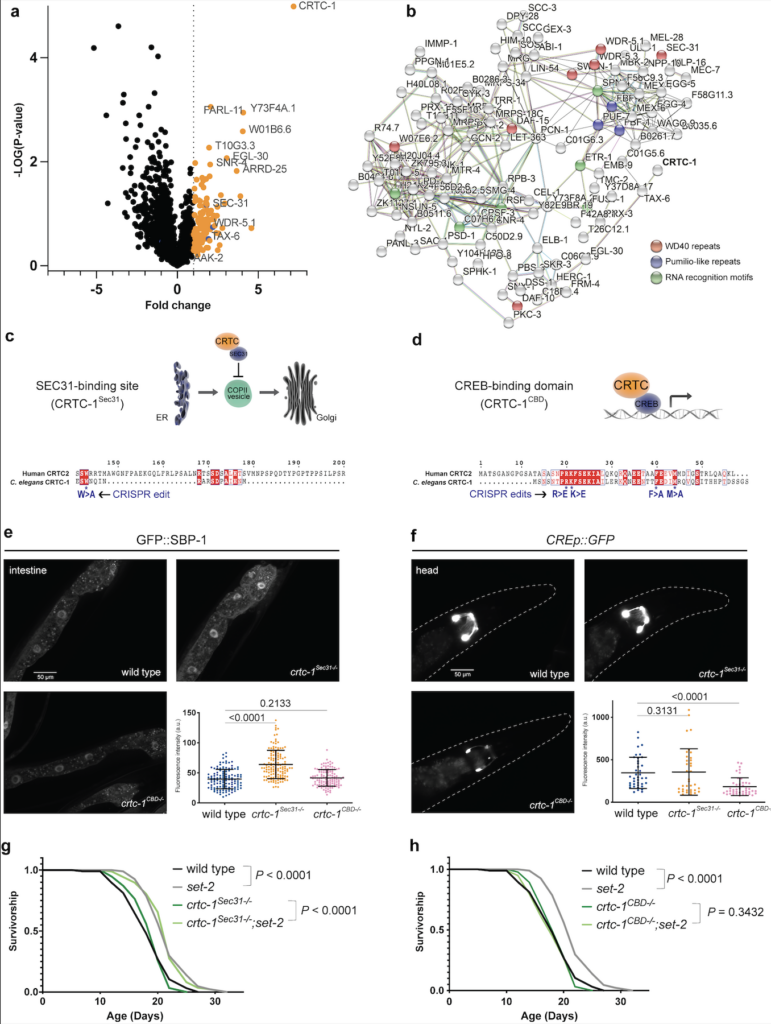Aging is a natural process, yet it can be accelerated or delayed by internal and external factors. In particular, CREB-regulated transcriptional coactivators (CRTCs) have emerged as novel modulators of aging that link energy sensing to transcription. Previous work demonstrated that CRTC-1 mediates the pro-longevity effects of AMP-activated protein kinase (AMPK). However, CRTCs have multiple functions in cells beyond transcription. It remains unclear how these various functions contribute to longevity.

In the current study, members of the Mair Lab interrogated the distinct functions of CRTC-1 in C. elegans by making precise point mutations in the crtc-1 gene using the CRISPR/Cas9 system. With this approach, they identified a new role for CRTC-1 in the epigenetic regulation of longevity. Epigenetic modifications are alterations in gene expression that occur independently of changes in the DNA sequence. Specific epigenetic modifications can significantly extend lifespan across various organisms.
Interestingly, the researchers found that the role of CRTC-1 in the epigeneticregulation of longevity is functionally distinct from the mechanism by which CRTC-1 modulates the pro-longevity effects of AMPK. Thus, CRTC-1 promotes longevity by coupling two modes of action: transcriptional activation and histone acetylation.
This work has important implications, as CRTCs have been associated with many age-related diseases, such as cancer, neurodegeneration, and diabetes. Understanding the various functions of CRTCs and how they connect with specific physiological processes will potentially inform the development of therapeutic strategies.
Congratulations to Carlos G. Silva-García, Laura I. Láscarez-Lagunas, Katharina Papsdorf, Caroline Heintz, Aditi Prabhakar, Christopher S. Morrow, Lourdes Pajuelo Torres, Arpit Sharma, Jihe Liu, Monica P. Colaiácovo, Anne Brunet & William B. Mair.



